NIL
CBS Sports’ Chip Patterson calls NCAA antitrust settlement a ‘sidestep’
A new era of college athletics is here, as Judge Claudia Wilken approved a multibillion-dollar legal deal, as schools can now pay athletes directly. CBS Sports’ Chip Patterson offers his thoughts on the settlement, Mike Elko’s program and much more. Key notes from Chip Patterson interview We aren’t moving in the wrong direction. We’ve changed the […]
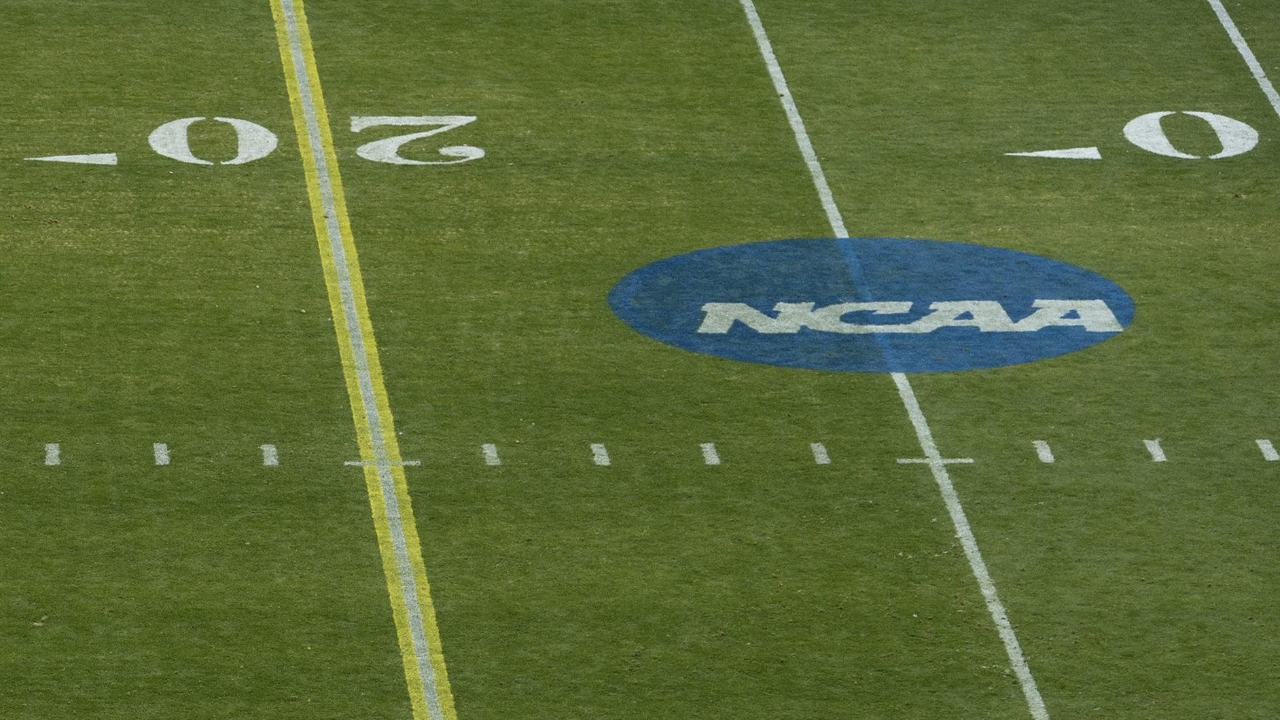
A new era of college athletics is here, as Judge Claudia Wilken approved a multibillion-dollar legal deal, as schools can now pay athletes directly. CBS Sports’ Chip Patterson offers his thoughts on the settlement, Mike Elko’s program and much more.
Key notes from Chip Patterson interview
- We aren’t moving in the wrong direction. We’ve changed the game rules and created a new environment. When NIL was first approved, it was dumped onto the leadership of college sports with no guidance. With the school directly paying players… I don’t know if it’s a win or a loss. It’s a sidestep. We’ve created a new set of problems to solve.
- Big picture, NIL didn’t address the way that schools are making so much off media rights payments. The students weren’t getting paid for the images that the players were being used in the media. The big picture doesn’t get down to the coaches and administrators who figure out how much goes to each player, coach and program. This is the “Is it gonna get passed? Is it not? Is it gonna get approved? Is it not?” Look, administrators put in the work so July 1, they are ready to go. I’m confident the sports world won’t collapse on July 1. There’s just a new set of challenges for the college sports world to solve.
- The employment leads to contracts, which are hopefully tighter and standard. Public and private universities have an employee through a conference which allows them to sign deals. Maybe it doesn’t work within the conference with transfers. Can you buy out of the contract and receive compensation? Their problem is the players who go to seven different schools cashing out.
- I like one portal window over two. I like the mid-January standpoint. You would’ve completed the postseason for most schools. You aren’t the first sports team to have a slow start. Let’s say after the quarterfinals of the College Football Playoff. I think it helps coaching and player commitment. You will still have players opt out of the playoffs and bowl games, I’m assuming. Every six months, there’s free agency. I think that’s unhealthy. I personally support the American Coaches Association’s options. It’s like, “Buddy, our problems are way bigger than the academic calendar.” For the sport as a whole, I don’t think it’s healthy to have a readjustment of contracts every six months.
- I don’t think Bill Belichick enjoys the tabloid stuff. His juices get flowing around the football guys. He’s with this North Carolina roster, building a group that will put his coaching skills to the test. It comes from his old mentor, Bill Parcells. Talking about being able to coach football but not being able to teach size. Let’s get big guys that need to be coached up, which is fascinating. The NFL ran him out of the league. There’s morbid curiosity coming from the NFL. The people who revel in the chaos are the people in the NFL. One of the reasons it’s such a big focus of fascination comes from the NFL.
- The one thing about last season at Texas A&M was the instability at quarterback. There has to be an assumption that you can take a step forward. That last game against Texas, where the biggest prizes were on the table. Texas could barely move the ball. Mike Elko got those boys charged up. The defense was playing lights out, and you just wished you could move the ball, but didn’t have enough healthy bodies.
- I think culture is overused, but Elko is a culture plus by instilling things day-to-day and how he gets the guys fired up every day. Getting Marcel Reed a full offseason and reinforcing the wide receiver position, where you don’t have to do anything you didn’t do before. I think they need guys in the locker room to breed this confidence. They need someone to be able to finish and go forward by competing for spots in the playoffs. I think you can look at Elko like a defensive mastermind.
- Elko may have years with great success and frustration. I think coming off that LSU win, you have to work on being ready. Duke always had a chip on their shoulder. A&M was riding real high, getting in the driver’s seat. It’s a good thing to have in the back of the mind, remembering the two bad losses.
NIL
Kentucky basketball handled NIL payments with maturity. Revenue-sharing era will be same
Before name, image and likeness brought huge payouts to college athletes, coaches panicked over its potential impact in the locker rooms. They thought pocket watching would be the rule of thumb and it would cause division on the team over how much individuals were making. There were tales here and there of jealousy over deals […]
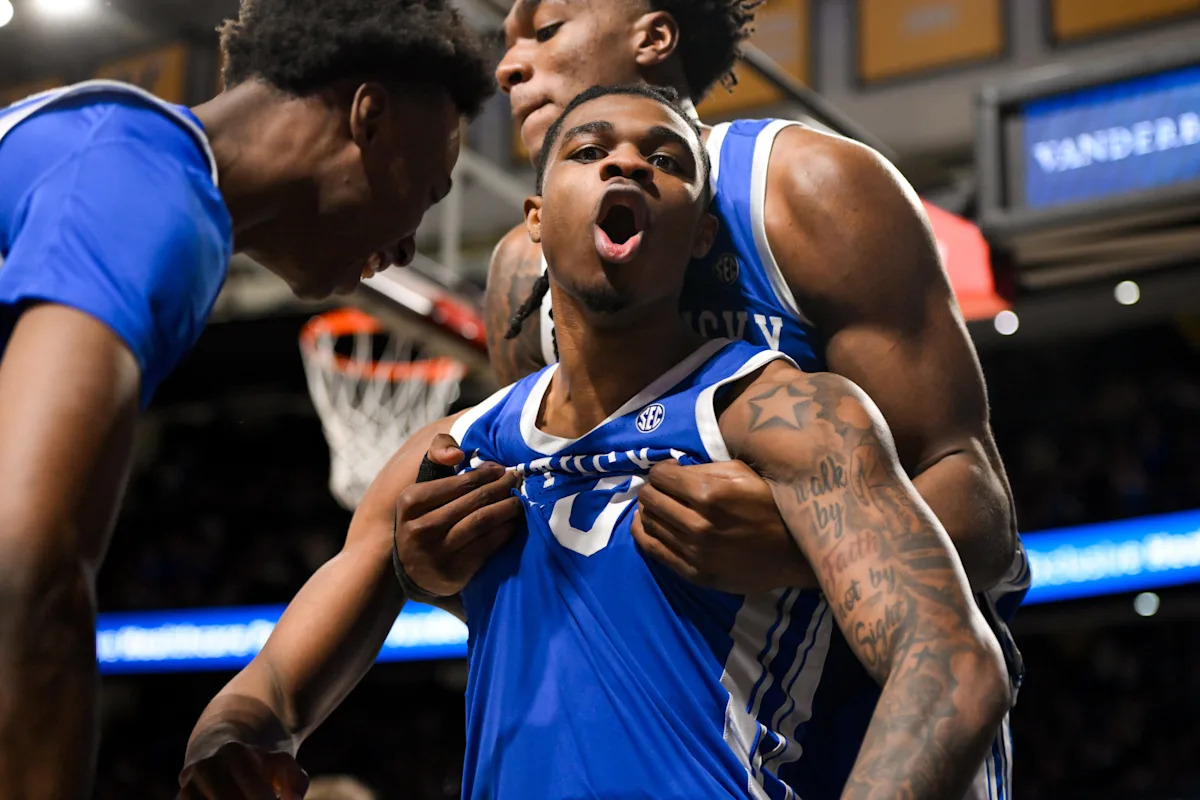
Before name, image and likeness brought huge payouts to college athletes, coaches panicked over its potential impact in the locker rooms. They thought pocket watching would be the rule of thumb and it would cause division on the team over how much individuals were making.
There were tales here and there of jealousy over deals tearing teams apart. Steve Alford said Nevada’s basketball team fell victim last season. Overall, the coaches were wrong about this one.
Advertisement
I bring that up because, as of Tuesday, colleges and universities can officially begin paying their athletes directly as part of the House v. NCAA settlement. There will be more players with deals that rival professional sports contracts.
It wasn’t a problem when it was just NIL, and it won’t be a problem with college athletes essentially getting salaries now.
Just ask Kentucky basketball players. Who’s making what isn’t a topic that is ever really broached in their locker room.
“If I’m being honest, we really don’t talk about it because it’s a weird conversation to have,” UK guard Otega Oweh said. “Like, ‘Oh, yeah, how much you making?’ It’s kind of strange, so we just stay away from that topic. Keep the hoops, the hoops.”
Advertisement
Unless some regulation is passed to get transparency and there is public reporting of team roster salaries, then it will be a guessing game for the athletes, too.
Players hear the same things the general public does when it comes to individual salaries and how much a school is reportedly paying its roster. Oweh said he heard the rumors that UK was paying $20 million for its 2024-25 basketball squad.
“I feel like it could be,” Oweh said. “A lot of other teams I’m seeing, like, similar things. So it could be, I really don’t know.”
Give the players some credit here. Every player in every sport has been through enough practices, enough drills and through enough game scenarios to know exactly who they’d want to make a play that will decide the game’s outcome.
Advertisement
There is an unspoken hierarchy. And the payments will reflect that reality. The disparity between who makes what is only going to get worse now with revenue sharing in play.
For those lucky enough to play professionally in their sport, this is simply the beginning of what life looks like in the real world.
Denzel Aberdeen transferred to UK after being a key reserve on Florida’s national championship run last season. He said comparing incomes wasn’t a problem for the Gators, and he hasn’t found any issues now that he’s with the Wildcats.
“We know what we came in for, we came in to play basketball,” Aberdeen said. “It ain’t really about the other stuff.”
Advertisement
That’s certainly not to say that it’ll never happen.
There will be cases where who is making what money will cause division in the locker room. But those occurrences will happen no more than players bickering over the starting lineup or who gets what plays called for them or the timeless tale of bickering over a love interest, which has been known to throw a monkey wrench in many a championship contender.
The bigger stories from NIL payments came over unfulfilled NIL promises including UNLV starting quarterback Matt Sluka, who transferred midseason because the school didn’t deliver on a verbal agreement. Or former Tennessee quarterback Nico Iamaleava reportedly asking for a pay increase to $8 million before leaving for UCLA.
The players handled making NIL money with maturity. Expect them to do the same with more money pouring in from the House settlement.
Advertisement
Reach sports columnist C.L. Brown at clbrown1@gannett.com, follow him on X at @CLBrownHoops and subscribe to his newsletter at profile.courier-journal.com/newsletters/cl-browns-latest to make sure you never miss one of his columns.
This story was updated to add a video.
This article originally appeared on Louisville Courier Journal: Kentucky basketball can handle NCAA revenue sharing: House settlement
NIL
Pitching with purpose: One Lady Vol’s NIL deal makes a difference
Thanks to Charli Orsini’s advocacy, every Tennessee softball video on Instagram now includes subtitles KNOXVILLE, Tenn. — For Tennessee softball’s Charli Orsini, her purpose is far beyond the softball field. “I always say it’s not about the disability — it’s about the ability,” said Orsini. Long before she ever wore orange, Orsini was watching the […]

Thanks to Charli Orsini’s advocacy, every Tennessee softball video on Instagram now includes subtitles
KNOXVILLE, Tenn. — For Tennessee softball’s Charli Orsini, her purpose is far beyond the softball field.
“I always say it’s not about the disability — it’s about the ability,” said Orsini.
Long before she ever wore orange, Orsini was watching the Lady Vols from 10,000 miles away, home in Australia, in class.
“I actually got my iPad confiscated because I would watch the World Series in class, and I’d have to put my iPad in phone iPad jail,” she said.
Becoming a Lady Vol was always her dream, and eventually, Knoxville became her home, but this story is not just about softball. Once a student athlete at Tennessee, Orsini found her calling.
“I started learning Australian sign language when I was in Australia and it was something that was like oh this is pretty cool. Part of my degree, you needed to learn a language, and I was enrolled in intermediate Russian and I was like let’s not do that,” added Orsini.
That switch led her to American Sign Language — and it became more than just a degree requirement.
“In the end of the day, I just want a world where everyone’s included,” said Orsini.
Unlike her teammates, Orsini is not eligible for NIL because she isn’t a U.S. citizen.
“Mom always says, Turn a red light into a green light.”
When Fans Meet Idols reached out about an NIL opportunity, Orsini decided to turn it into a deal for purpose, not for profit, with 100% of the proceeds from her merch going to the Tennessee School for the Deaf.
“It kind of sucks, like my freshman and sophomore year, like I kind of had to sit on the sideline because I wasn’t presented with this opportunity before. So I knew that, like, I had this idea and I’m gonna run with it,” added Orsini.
The mission hits close to home for one of her professors, Ethan Swafford, who attended the Tennessee School for the Deaf.
“I was completely surprised, and at the same time honored, because I’m an alumni of the Tennessee School for the Deaf. I graduated. I attended that school. I played sports there, I earned a letter in three sports there,” said Swafford.
Orsini’s newest piece in the collection? A jersey featuring her last name spelled out in ASL.
“It gives you an opportunity to say, ‘Wow, let me teach you about it’,” said Orsini
The ripple effect is reaching younger generations, including a second grader named Charlee at the Tennessee School for the Deaf in Nashville.
Charlee’s mom, Amy, entered her in one of Orsini’s Instagram giveaways — and didn’t tell her.
“I didn’t tell her about the giveaway, so she saw the front of the shirt. She was like, ‘Oh, that’s cool’. Well, when I turned it around and she saw the ASL on there, she was like, ‘Wait, what?’ And so we talked about it. She saw that it had her school name on the inside of the jersey, and she was super excited about it. Danced around our living room for a little while,” said Amy Ferrell.
Charlee was even more excited when she learned what Orsini was doing for her school.
“I’m happy about that because teachers, principals, they need some money to get new things for the building, different food,” said Charlee.
Thanks to Orsini’s advocacy, every Tennessee softball video on Instagram now includes subtitles. Additionally, the in-stadium video board features subtitles at home games — ensuring Deaf fans can be part of the big moments, too.
“Imagine a world where you can’t hear and you go to a game and you don’t know what’s happening now, all of a sudden, one person makes a really small change, and now you know what’s going on,” added Orsini.
And for Amy, it’s something families like hers have long needed.
“I grew up watching UT sports. My parents have season tickets to the game, so it just makes it that much more special. Any accessibility is huge. It’s one less burden we as a family have to fight for,” added Ferrell.
NIL
A Breakdown of the FGCU Women’s Soccer Team’s 2025 Schedule – Eagle Media
The FGCU women’s soccer team released its 2025 schedule on Thursday, July 3, which features a mix of Southeastern Conference (SEC) opponents and cross-state rivals. The schedule consists of 20 matches, with 10 home games and 10 away games, unlike its male counterpart. The Eagles will kick off their 2025 season with a pair of […]

The FGCU women’s soccer team released its 2025 schedule on Thursday, July 3, which features a mix of Southeastern Conference (SEC) opponents and cross-state rivals. The schedule consists of 20 matches, with 10 home games and 10 away games, unlike its male counterpart.
The Eagles will kick off their 2025 season with a pair of exhibition matches. FGCU will play Miami in Coral Gables on Aug. 3. This will be the eighth all-time meeting between the two teams, with the Hurricanes holding a 4-2-1 advantage in the series. In an exhibition match last year, both teams ended in a 0-0 draw at Pickering Field at the FGCU Soccer Complex. FGCU rounds out exhibition play against Miami-Dade College on Aug. 8.
The season begins with a two-game homestand against Cal State Fullerton and Webber International on Aug. 14 and Aug. 17, respectively. Both games set up the first of three SEC matchups this season. The Eagles will host LSU on Aug. 21, in what will be the first-ever matchup between the two programs. The Tigers finished the 2024 season with a 9-9-3 record, which earned them an at-large bid to the NCAA Tournament. This will be the second consecutive season in which FGCU hosts an SEC opponent.
From there, the Eagles will embark on their longest road trip of the season, spanning four matches. FGCU will play Florida rivals FAU and FIU on Aug. 28 and Sept. 4. Then, the Jim Blankenship-led team will face the SEC duo of Florida and Auburn on the road. They will complete the second leg of a home-and-home series against the Gators on Sept. 4. FGCU has played against Florida eight times and has yet to beat them. The best result occurred last season, which was a 0-0 draw at Pickering Field.
Story continues below advertisement
Then, FGCU will travel to Auburn, Alabama, to face off against Auburn on Sept. 7. The Tigers are coming off an impressive season, posting a 13-4-4 record with an appearance in the 2024 NCAA Tournament’s second round. This will be the second matchup against the Tigers in program history, the first being a 1-0 defeat in the first round of the 2014 NCAA Tournament.
The Eagles return to Pickering Field on Sept. 11 to wrap up their non-conference slate against the Grambling State Tigers.
FGCU aims to repeat its strong season in the ASUN, where it went 9-1-1, earning the top seed in the ASUN tournament. The Eagles fell to Eastern Kentucky in the semifinals of the tournament, 2-1, in extra time. They begin their conference slate with three straight road games against Stetson on Sept. 21, Queens on Sept. 25 and West Georgia on Sept. 28. The Eagles outscored each university by a combined 15 goals last season.
The Eagles then return home for a two-match homestand against cross-state rivals Jacksonville and North Florida on Oct. 2 and Oct. 5, respectively. A two-match road trip against the Dolphins and the Ospreys follows on Oct. 9 and Oct. 12, respectively. FGCU swept both games against JU and UNF last season.
Following the road trip, FGCU wraps up its regular season with a three-match homestand. The Eagles will host West Georgia on Oct. 16, Queens on Oct. 19 and Stetson on Oct. 25 at Pickering Field.
After coming up short in the 2024 ASUN Tournament, the Eagles eye redemption with key All-ASUN players: Erika Zschuppe, Kendal Gargiula, and Lauren Dwyer, returning for a run at the title.
NIL
New college sports agency rejecting some NIL deals
The new agency in charge of regulating name, image, likeness deals in college sports sent a letter to schools Thursday saying it had rejected deals between players and donor-backed collectives formed over the past several years to funnel money to athletes or their schools. What You Need To Know A new college sports agency has […]
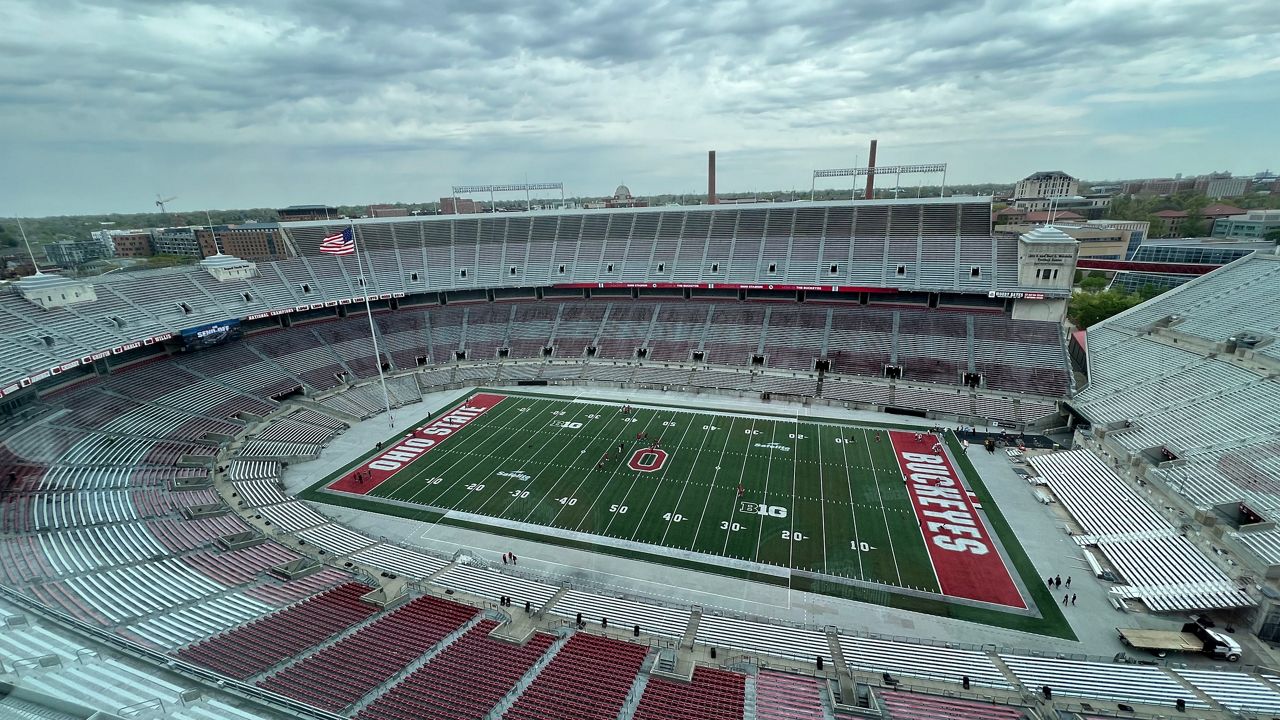
The new agency in charge of regulating name, image, likeness deals in college sports sent a letter to schools Thursday saying it had rejected deals between players and donor-backed collectives formed over the past several years to funnel money to athletes or their schools.
Those arrangements hold no “valid business purpose,” the memo said, and don’t adhere to rules that call for outside NIL deals to be between players and companies that provide goods or services to the general public for profit.
The letter to Division I athletic directors could be the next step in shuttering today’s version of the collective, groups that are closely affiliated with schools and that, in the early days of NIL after July 2021, proved the most efficient way for schools to indirectly cut deals with players.
Since then, the landscape has changed yet again with the $2.8 billion House settlement that allows schools to pay the players directly as of July 1.
Already, collectives affiliated with Colorado, Alabama, Notre Dame, Georgia and others have announced they’re shutting down. Georgia, Ohio State and Illinois are among those that have announced plans with Learfield, a media and technology company with decades of licensing and other experience across college athletics, to help arrange NIL deals.
Outside deals between athlete and sponsor are still permitted, but any worth $600 or more have to be vetted by a clearinghouse called NIL Go that was established by the new College Sports Commission.
In its letter to the ADs, the CSC said more than 1,500 deals have been cleared since NIL Go launched on June 11, “ranging in value from three figures to seven figures.” More than 12,000 athletes and 1,100 institutional users have registered to use the system.
But the bulk of the letter explained that many deals could not be cleared because they did not conform to an NCAA rule that sets a “valid business purpose” standard for deals to be approved.
The letter explained that if a collective reaches a deal with an athlete to appear on behalf of the collective, which charges an admission fee, the standard is not met because the purpose of the event is to raise money to pay athletes, not to provide goods or services available to the general public for profit.
The same would apply to a deal an athlete makes to sell merchandise to raise money to pay that player because the purpose of “selling merchandise is to raise money to pay that student-athlete and potentially other student-athletes at a particular school or schools, which is not a valid business purpose” according to the NCAA rule.
A deal, however, could be approved if, for instance, the businesses paying the players had a broader purpose than simply acting as a collective. The letter uses a golf course or apparel company as examples.
“In other words, NIL collectives may act as marketing agencies that match student-athletes with businesses that have a valid business purpose and seek to use the student’s NIL to promote their businesses,” the letter said.
NIL
Former College Football Backup Details ‘Shocking’ NIL Earnings
iStockphoto Audio By Carbonatix NIL has completely changed the landscape of college sports. Football players, in particular, are reaping the benefits of a wide-open market that has few constraints. One former Florida Atlantic football player showed just how lucrative the payment system can be for those that play their cards right. Josh Moore made more […]

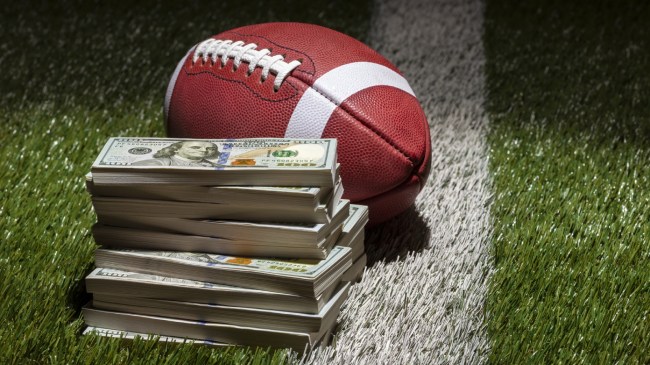
iStockphoto

Audio By Carbonatix
NIL has completely changed the landscape of college sports. Football players, in particular, are reaping the benefits of a wide-open market that has few constraints.
One former Florida Atlantic football player showed just how lucrative the payment system can be for those that play their cards right. Josh Moore made more than you’d expect given his status on a Group of 5 roster.
Moore was a reserve player that began his career at UCLA. After one season, he transferred closer to home to suit up for the Owls in Boca Raton.
While he was a contributor both on defense and special teams, he was never in the starring role. Moore often found himself No. 2 or 3 on the depth chart. It didn’t prevent him from financial success.
Off the field, Josh Moore is a content machine. He was named the 2024 Athlete Creator of the Year. He boasts more than 300k followers on TikTok and another 376k on Instagram.
He makes a living (literally) off of his football videos through major brand deals. He’s also been using his online fame to educate the future.
Moore has a TikTok series called “Football and Finance” where he breaks down notable NIL happenings in the world of college sports. He also details his own past experiences as a player and content creator.
How much do college football players make in NIL?
Moore provided his personal income from 2024 while at FAU. Keep in mind that this is a player that logged just 11 career tackles as a reserve. The numbers might shock you!
A breakdown:
January: $1,584.06
February: $4,119
March: $3,256.45
April: $3,256
May: $5,430.97
June: $4,470.94
July: $4,986.92
Here’s where things go crazy. Moore hired an agent ahead of August. He saw an immediate impact on his bottom line.
August: $15,421.35
September: $6,480
October: $18,260.48
November: $13,426.66
December: $28,497.41
Total yearly earnings – $107,990.04. Not bad for a backup! And it’s all a credit to Josh Moore.
He notes that these payments were not simply given to him through a football team collective. He earned them through partnerships with major companies, including Nike, DoorDash, and Meta.
Moore created his own personal brand and popularity through social media. He then leveraged his fame into brand deals with some of sports’ biggest names. The former college football player showed the power of NIL when done right.
NIL
Penn State Below Top Programs in Average NIL Recruit Spending
Money talks, especially in college football. Everything changed when NIL came into existence a few years ago and altered the landscape of college sports forever. Gone are the days of amateurism as brand deals and universities paying players have taken over. Culture, fit, team success, preparedness for the NFL, and other factors still significantly matter, […]
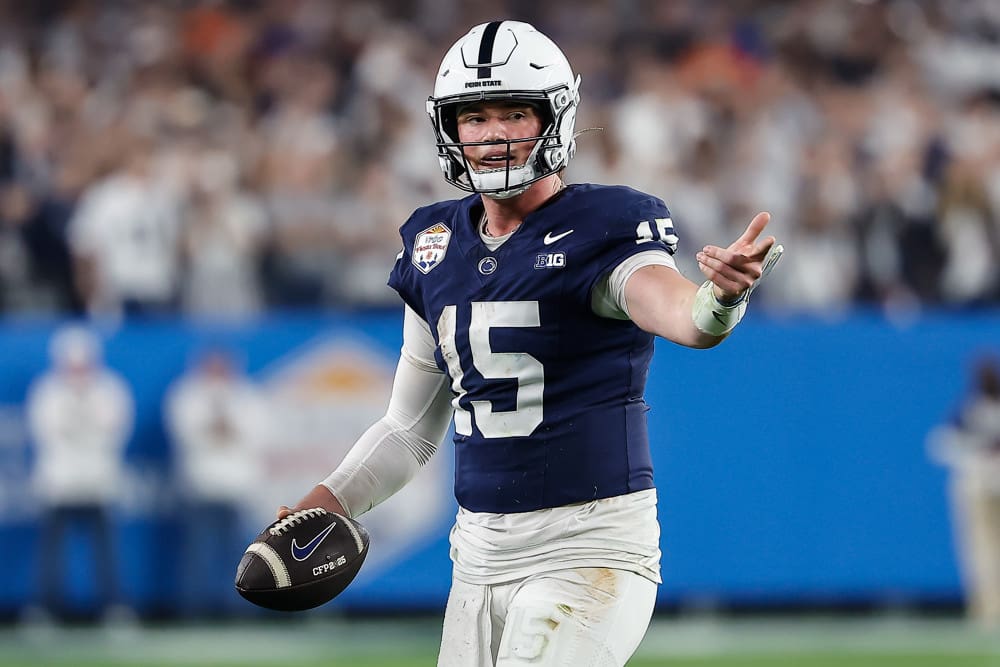
Money talks, especially in college football.
Everything changed when NIL came into existence a few years ago and altered the landscape of college sports forever.
Gone are the days of amateurism as brand deals and universities paying players have taken over.
Culture, fit, team success, preparedness for the NFL, and other factors still significantly matter, but many players could choose to go where the money takes them.
If that’s the case, it won’t always take them to Penn State. On3 updated its 2025 recruiting rankings earlier this month and identified NIL averages for players at each school.
According to On3, Penn State is paying its players an average of $87,000. For the recruiting class of 2026, the number is even lower.
The site sources Penn State with a $59,000 average payout for players. That’s lower than Texas Tech ($81k), Washington ($72k), Ole Miss ($72k), South Carolina ($72k), and BYU ($69k).
Penn State is frequently in the final groupings for recruits who hold offers from Oregon ($232k), Georgia ($189k), Ohio State ($150k), Notre Dame ($104k), and Michigan ($91k), who all significantly outspend the Nittany Lions.
James Franklin has consistently said Penn State is built through high school recruiting, culture, and player retention. He isn’t in the market to build a program around transfers and fully turnover his roster due to NIL.
“I want this experience to be so much more than a transactional experience,” Franklin said after losing to Notre Dame in the College Football Playoff semifinals. “I want it to be transformational.”
It’s natural some players will leave for other opportunities, whether it’s playing-time related or a personal decision.
Nowadays, we’ve seen more transactional moves. Penn State has made a few.
It’s no secret PSU has improved through the portal. PSU revamped the wide receiver room with Kyron Hudson (USC), Devonte Ross (Troy), and Trevor Peña (Syracuse) thanks to the portal.
Linebacker Amare Campbell (North Carolina) and returning safety King Mack (Alabama) help bolster Jim Knowles’ defense.
Penn State ranks No. 13 with an On3 recruiting score of 90.912 this year, below Oregon (4), Ohio State (5), Michigan (6), and Notre Dame (12).
The program slots No. 15 in 2026 (89.698) and is behind the same cluster of competitors.
Players’ retention is a critical factor in Penn State being regarded as a leading national championship threat.
Quarterback Drew Allar, running backs Nick Singleton and Kaytron Allen, defensive tackle Zane Durant, edge Dani Dennis-Sutton, linebackers Dom DeLuca and Tony Rojas (portal), cornerback A.J. Harris (portal), safety Zakee Wheatley, and four starting offensive linemen could have either entered the transfer portal or the NFL draft.
Penn State hosts Nevada on August 30 to begin the much-anticipated season in Happy Valley.
-

 Technology2 weeks ago
Technology2 weeks agoPet fitness and wellness trends for a healthier and happier dog
-

 College Sports2 weeks ago
College Sports2 weeks agoWAC to Rebrand to UAC, Add Five New Members in 2026
-

 Motorsports1 week ago
Motorsports1 week agoWhy Cosmetics are Making Up for Lost Time in Women’s Sports
-
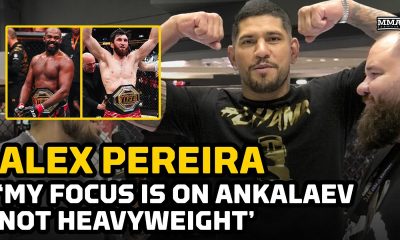
 Professional Sports3 weeks ago
Professional Sports3 weeks agoAlex Pereira responds to rumors of UFC heavyweight title fight with threatening message
-

 College Sports3 weeks ago
College Sports3 weeks agoAlabama Basketball
-

 Professional Sports3 weeks ago
Professional Sports3 weeks agoFrancis Ngannou sends Dana White a message following Jon Jones' shock UFC retirement
-

 College Sports2 weeks ago
College Sports2 weeks agoA new era of Dickinson hockey begins behind the bench – The Dickinson Press
-

 Motorsports2 weeks ago
Motorsports2 weeks agoNASCAR This Week – Patriot Publishing LLC
-
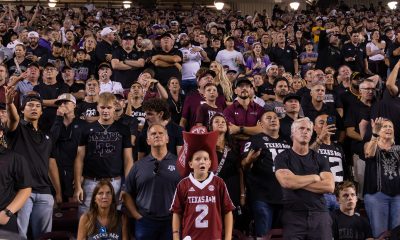
 Sports3 weeks ago
Sports3 weeks agoSEC Conference imposing a fine will create the opposite effect.
-

 Health2 weeks ago
Health2 weeks agoFlorida assault survivor shares hope for change with new mental health law































